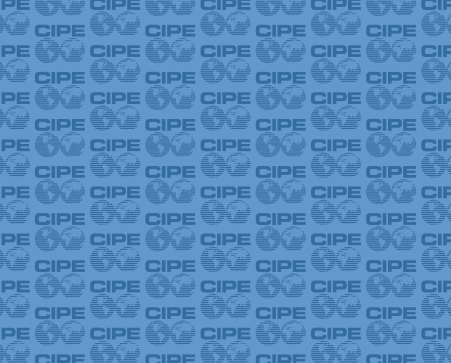
By William Vogt
Since the rise and fall of the Arab Spring, debate has raged in the fields intersecting communications, technology, and international affairs: will Internet growth be a liberalizing influence that will create stable, prosperous democracies?
So far, this answer appears to be a qualified “no.” Connected and educated youths have not created the groundswell necessary for reform in many politically unstable countries. On the other hand, investments in information communications technologies (ICTs) have greatly improved local economies in many developing countries and hold promise in exposing and rooting out corruption.
In this last point, fighting corruption, the rise of the Internet as a social and economic force has created perplexing political trends. Increased Internet penetration does reduce at least one key aspect of corruption affecting free market interactions: barriers to market entry (for producers and consumers) due to opaque regulations and powerful oligarchies. In fact, studies have shown that merely the act of searching broad terms like “corruption” on an online search engine has significant impacts on the ability of the state to engage in corrupt, anti-competitive practices like demanding bribes from businesses.
This trend, however, does not hold globally and there is one part of the world that has created a particularly worrying balance between the forms of democracy and what is functionally a system of corruption: Latin America. Over its long history this region has developed a unique political culture with a prominent role for the ideology frequently described today as “populism.”
Populism entails strongly charismatic leadership directed at many of the traditionally marginalized voters in society; in the countries where populism is most dominant (Venezuela, Bolivia, Ecuador, Nicaragua, and Argentina) this implies a focus on policies that aim to benefit rural and indigenous groups, often at the expense of business owners and the urban middle class. In this way populists exploit history and structural economic imbalances to create a situation where large sectors of society misread free enterprise as a repressive, neocolonial influence.
Latin American populists have used Internet-powered tools – ironically, products of the free market – to bolster their power in a couple of important ways. For example, they have engaged in aggressive, public social media campaigns to not only spread their message to target users (especially connected and disaffected youths) but – much more importantly – also to confront their opposition with insults and an overwhelming volume of pro-populist messages.
Populists have also exploited the “digital divide” – the inequality in access to ICTs – labeling it an indigenous/campesino (“peasant”) political issue and going after corporate service providers. This is especially the case in states where populists are in control of the government and can, depending on their level of power, either make forceful threats or defiantly carry out telecommunications nationalizations at a moment’s notice.
Going back to the original argument, why does the relationship between Internet penetration and corruption break down so easily under populist rule? Based on the outlined tenets of populist strategy, a nationalized telecommunications provider will focus on increasing access in areas where the political base is located, mainly rural, indigenous areas. But even if they succeed in broadening access, populist Internet policies may still lead to reduced competition and innovation, poorer-quality service (especially in urban centers with less populist support), and political interference such an monitoring online speech or blocking certain websites or services.
These conclusions can help provide a clearer roadmap for organizations like CIPE and its partners, not only in Latin America but also around the world. Focusing on the specifics of different political cultures and regime types is essential when trying to understand the role technology plays in society.
At the same time, it is important to recognize and emphasize our definitions of “democracy” and “free enterprise” so that those who should advocate for it the most truly understand its benefits. Populism distorts such definitions, using them to manipulate public opinion and gain great control over suffering societies. Through the work of CIPE and others I hope that the implementation of ICT in international policy and development work will help to combat such deception and further improve the collaborative, pro-growth environment fostered by the global Internet.
William Vogt is a Communications Intern at CIPE.
Published Date: February 24, 2015